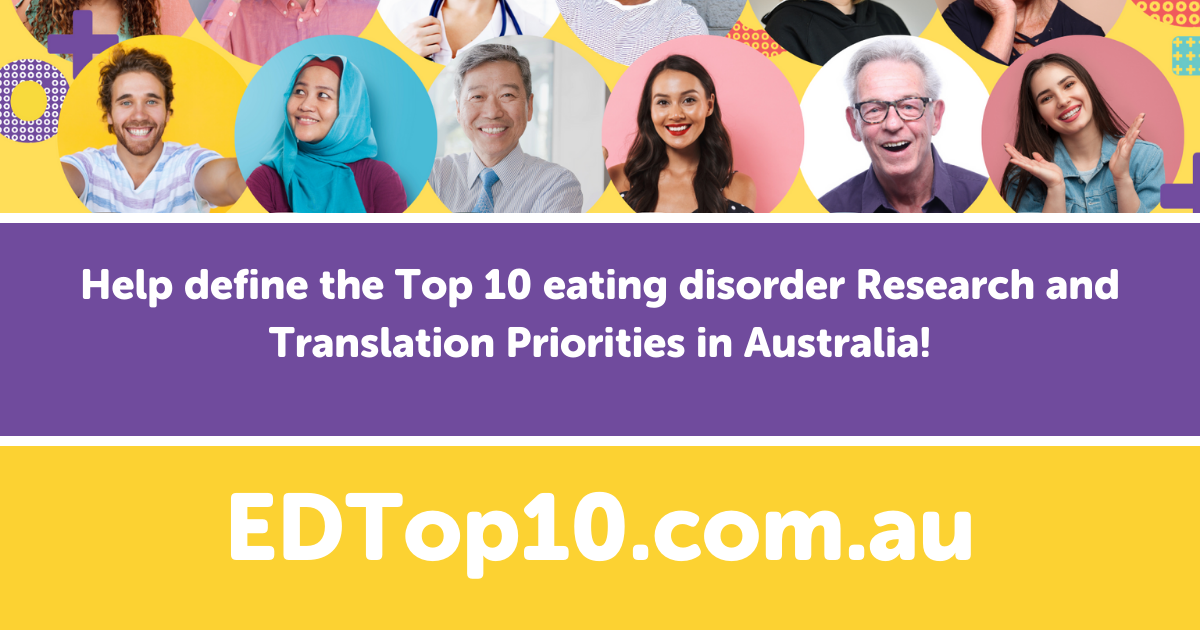Ever wondered how it is we know what we know? The answer is research! But how do researchers decide what to study? In part two of a three-part series, InsideOut eating disorder researcher Dr Phillip Aouad outlines the breakthroughs which he considers have had the biggest impact on treatment.
Research plays an important role in discovering new treatments and making sure that we use existing treatments in the best ways possible.
You can read about how research shapes our collective understanding of the world and how we decide what to investigate here.
Research into the most effective treatments is particularly important to the field of eating disorders, where we need to constantly keep up to date about what works best for different disorders.
Eating disorder 'breakthroughs'
In the case of eating disorders, there have been several key findings or ‘breakthroughs’.
Here’s a list I’ve created of what I consider are five of the 10 most interesting, transformative, and impactful findings related to eating disorder research and why they are important.
Eating disorders have genetic markers and links to other conditions
Two major studies come to mind when talking about eating disorders and the possibility of finding genetic links to other conditions.
First was the ANGI Study, and currently the EDGI Study. Genetic studies aim to detect genetic differences in eating disorders to determine their genetic components and if they may be linked to other disorders. This is important as it highlights the potential biological basis of anorexia nervosa, and could be useful in developing targeted treatments.
Microbiome and eating disorders
There's increasing interest in the link between the microbiome (gut flora) and eating disorders, in recent years.
Findings between gut health and eating disorders can lead to changes in treatment and could change our approach to gut health in eating disorders.
Eating disorder have been linked with specific neurobiological processes
Oxytocin (commonly known as the “love hormone”) can be used as a treatment for anorexia nervosa. It is thought to be able to help “shift” focus from fear of eating.
More accurately, it is thought to lower an individual’s eating concerns, as well as possibly lower stress levels when presented with the prospect of eating.
Knowing how such neurobiological processes influence eating disorder behaviours allows us to target particular ‘centres’ or areas in the brain that may contribute to particular behaviours.

Eating disorders may impact Aboriginal and Torres Strait Islander Peoples (First Australians) more than non-indigenous Australians
Eating disorder rates between First Australians and Other Australian’s have traditionally been understudied.
However, recent research has indicated that eating disorders maybe higher in First-Australians (28%) compared to non-Indigenous Australians (22%), particularly Other Specified Feeding or Eating Disorder – Night-Eating Syndrome (OSFED-NES), is thought to be almost double the prevalence rate (7% vs 3.7%).
Understanding the prevalence differences in eating disorders between First Australian and non-indigenous Australians will help us understand why such a prevalence gap exists, and enable the development of targeted intervention and support.
Eating disorders impact grey matter in the brain. But, it can be regenerated
Although grey matter in the brain decreases with length and severity of the eating disorder (particularly anorexia nervosa), it can be regenerated back to almost normal levels in certain parts of the brain. Such findings shows us that recovery of brain grey matter is linked to improving symptoms and that some of the physical harms to the brain caused by eating disorders may be reversed.
Determining the future of Australian eating disorder research
You can read the about the rest of my top ten breakthroughs here.
In the meantime, you can help influence what eating disorder researchers focuses on!
InsideOut Institute is currently leading a project to identify the Top 10 eating disorders research and translation priorities in Australia, decided collectively by people who have a lived experience of an eating disorder, their family and carers, clinicians and researchers.

Now more than ever we need your help in setting out the roadmap that Australia will use for the next 10 years to drive eating disorder research forward and help us determine what problems need solutions.
To have your say, please take the 10 minute priority setting survey at EDTop10.com.au

